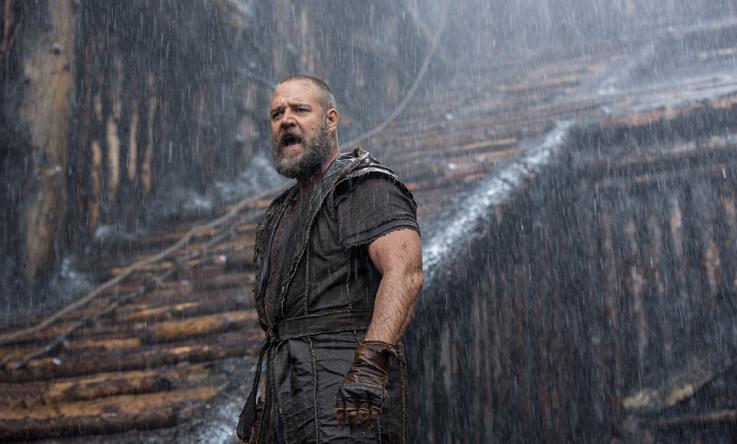“Noah” Review
Russell Crowe is Noah in “Noah,” from Paramount Pictures and Regency Enterprises. (Courtesy Niko Tavernise/MCT)
From the fancifully exotic director of Requiem for a Dream and Black Swan comes another outlandish, yet visually stunning escape. But this time it is in the context of a timeless Biblical tale. Darren Aronofsky’s Noah is an aesthetic combination of breathtaking set pieces — adapted with a futuristic touch — and the ancient tale of Noah’s Ark.
Keep in mind — this is a completely fictional illustration of the deluge from the Book of Genesis, and Noah’s mission to save the pure by leaving the wicked to fend for themselves. Whether the story be true or false, the very idea of a man taking on this arduous task in the face of an inevitable catastrophe is arguably the most awe-inspiring saga of the Bible and other great literature.
Russell Crowe (Gladiator) portrays a much more complicated and severely flawed Noah (compared to the wholly moral representation in Genesis). Jennifer Connelly (Requiem for a Dream) also stars as Noah’s wife, making this film her second collaboration with Crowe. Both played husband and wife in Ron Howard’s A Beautiful Mind.
Other essential cast members include Emma Watson (Harry Potter), who plays Noah’s adopted daughter, Logan Lerman (The Perks of Being a Wallflower) who plays Noah’s naïve son, Anthony Hopkins (The Silence of the Lambs) who plays Noah’s wise grandfather, and Ray Winstone (Beowulf), who plays a worldly and barbaric tyrant named Tubal-cain.
Both Crowe and Winstone have on par dialogue when discussing two different viewpoints — Noah believing God (addressed as “the Creator”) has forsaken the Earth’s inhabitants but is counting on him to save the innocent, and Tubal-cain’s saying man’s purpose is to determine every living creature’s way of life, regardless of whether or not he believes in the Creator and its aims for man.
The film also includes the concept of the Fallen Angels. Only here has Aronofsky made another modification — instead of being represented as unethical or sinful outcasts of the Heavens, they are presented as servants who only had different opinions than the Creator, and attempt to return by aiding Noah in his mission over the years.
Though the appearance of the Angels may seem completely cheesy at first (because they are depicted as rock monsters), their overall appearances and characterizations add a sort of a Aesop’s Fables-like feel to it. Their incorporation into the work is effective and entertaining in that regard.
Additionally, the controversy regarding Aronofsky’s portrayal of Noah is understandable, and the cinematic depiction may be disturbing to those faithful to the original story. The film depcits Noah as a reckless, faith-driven psychopath by the third act.
However, Aronofky’s project (that he has aspired to make since childhood) also has the nuances of classic filmmaking, and is still visionary and enthralling. Although the film was met with rather low critical reception from mainstream audiences, Noah is both a well-rounded fantasy epic and provocative interpretation of a story that deals with themes of loyalty and family. It essentially acts as a case study of the pros and cons of the story’s moral.
This film is yet another example of why we love going to the movies. And for all those can’t stand the occasional awkward stiffness of Russell Crowe’s acting — don’t fret. Just remember — it’s still got Ray Winston, Jennifer Connelly, and Anthony Hopkins as well. On a scale from 1 to 10, I give Noah an 8.7. Noah was released March 28th and is PG-13 (for some bloody violence, disturbing images, and brief suggestive content).


